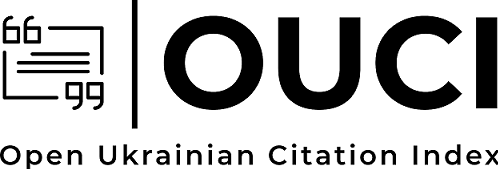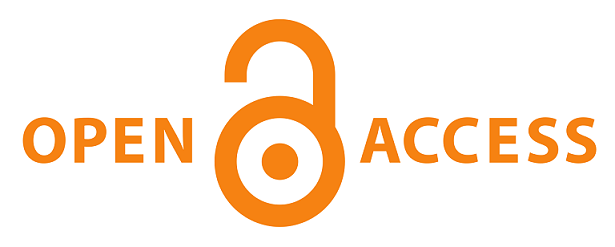НАВЧАННЯ ПІВДЕННИХ СЛОВ’ЯН У КИЇВСЬКІЙ ДУХОВНІЙ АКАДЕМІЇ (1900–1918)
DOI:
https://doi.org/10.28925/2524-0754-0757.2017.1.918Ключові слова:
південні слов’яни, навчання, Балкани, Київська духовна академіяАнотація
У статті всебічно схарактеризовано навчання студентів південних слов’ян у Київській духовній академії на початку ХХ ст. Показано зацікавленість влади Російської імперії у підготовці духовенства для Балкан. Розкрито солідарність південнослов’янської молоді з українською громадськістю щодо неприйняття жандармсько-поліцейських методів управління в Україні, простежено долю випускників після здобуття освіти в Києві.
Завантаження
Посилання
Izvlecheniie iz zhurnalov soveta Imperatorskoi Kievskoi Dukhovnoi Akademii za 1915–1916 uchebnyi god. — K., 1916. — S. 90–93.
Kulakovskyi P.A. Nachalo russkoi shkoly u serbov v XVIII v. // Izvestiia otdeleniia russkogo yazyka i slovesnosti Imperatorskoi Akademii nauk. — T. XVIII. — Kn. 2. — SPb., 1903. — S. 6–9.
Prelovska I. Kyivska Akademiia: istoriia i suchasnist // Trudy Kyivskoi Dukhovnoi Akademii. — K., 2003. — № 1. — S. 16–25.
Prof. P. Kulakovskyi Pobedonostsevu K.P. Pysmo 8.03.1889 g. iz Varshavy «O neobkhodimosti postavit Serbskuiu Tserkov v zavisimost ot Rossii» // Instytut rukopysu Natsionalnoi biblioteky Ukrainy im. V.I. Vernadskoho. — F. XIII. — Spr. 350. — 128 ark.
Rech o Otchete o sostoianii Imperatorskoi Kievskoi Dukhovnoi Akademii za 1912–1913 uchebnyi god. — K., 1914. — S. 99–100.
Tsentralnyi derzhavnyi istorychnyi arkhiv Ukrainy u Kyievi (CzDIAK Ukrainy). — F. 711. — Op. 3. — Spr. 2551. — 237 ark.
CzDIAK Ukrainy. — F. 711. — Op. 3. — Spr. 2576. — 175 ark.
CzDIAK Ukrainy. — F. 711. — Op. 3. — Spr. 2852. — 242 ark.
CzDIAK Ukrainy. — F. 711. — Op. 3. — Spr. 2600. — 269 ark.
CzDIAK Ukrainy. — F. 711. — Op. 3. — Spr. 2603. — 148 ark.
CzDIAK Ukrainy. — F. 711. — Op. 3. — Spr. 2616. — 345 ark.
CzDIAK Ukrainy. — F. 711. — Op. 3. — Spr. 2668. — 256 ark.
CzDIAK Ukrainy. — F. 711. — Op. 3. — Spr. 2680. — 254 ark.
CzDIAK Ukrainy. — F. 711. — Op. 3. — Spr. 2868. — 482 ark.
CzDIAK Ukrainy. — F. 711. — Op. 3. — Spr. 3051. — 234.ark
CzDIAK Ukrainy. — F. 711. — Op. 3. — Spr. 3151. — 147 ark.
CzDIAK Ukrainy. — F. 711. — Op. 3. — Spr. 3179. — 244 ark.
CzDIAK Ukrainy. — F. 711. — Op. 3. — Spr. 3621. — 344 ark.
CzDIAK Ukrainy. — F. 711. — Op. 3. — Spr. 3732. — 190 ark.
CzDIAK Ukrainy. — F. 711. — Op. 3. — Spr. 3863. — 258 ark.
CzDIAK Ukrainy. — F. 711. — Op. 3. — Spr. 3928. — 210 ark.
CzDIAK Ukrainy. — F. 711. — Op. 3. — Spr. 3931. — 341 ark.
CzDIAK Ukrainy. — F. 711. — Op. 3. — Spr. 4057. — 248 ark.
Опубліковано
Як цитувати
Номер
Розділ
Ліцензія
Авторське право (c) 2017 Київські історичні студії

Ця робота ліцензується відповідно до Creative Commons Attribution-NonCommercial-ShareAlike 4.0 International License.
Автори, які публікуються у цьому журналі, залишають за собою право на авторство своєї роботи та передають журналу право першої публікації цієї роботи на умовах публічної ліцензії Creative Commons: Attribution-NonCommercial-ShareAlike 4.0 International (CC BY-NC-SA 4.0), котра дозволяє іншим особам вільно розповсюджувати опубліковану роботу з обов'язковим посиланням на авторів оригінальної роботи та першу публікацію роботи у цьому журналі.














